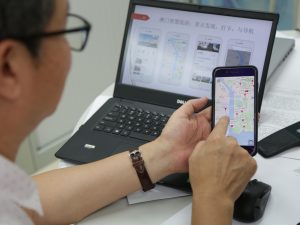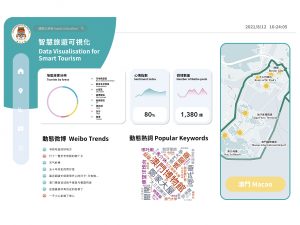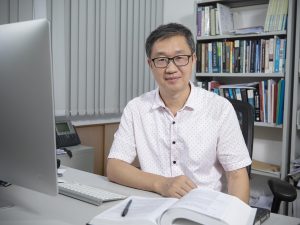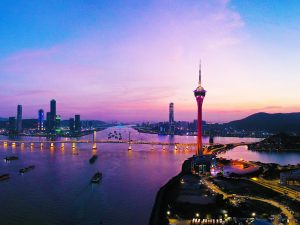The massive data we create every day on social media holds the key to transforming the travel industry. At the University of Macau (UM), researchers are designing advanced algorithms which can help Macao become a smart world centre of tourism and leisure.
Tailor‑made Tours for Everyone
Prof Gong Zhiguo is a data mining expert and head of UM’s Department of Computer and Information Science. At the State Key Laboratory of Internet of Things for Smart City (University of Macau), Prof Gong and his students are designing mobile applications for tourists and the tourism sector. Their project, titled ‘A Hierarchical Categorisation Model for Online Events Discovery from Social Media Data’, has received support from the Macao Science and Technology Development Fund since 2019.
Among the many products resulting from their research is a mobile application that can recommend personalised itineraries for users. It works by analysing the ‘travel trajectory’ of the users on social media, which is largely a list of places they have travelled in Macao tagged with visiting times and comments. Prof Gong believes that providing more personalised travel experiences will encourage tourists to stay longer in Macao. ‘Our app also uses transfer learning algorithms to analyse the travel preferences of visitors in their hometowns, so that it can recommend travel options once they arrive at Macao,’ he says
The UM research team has also developed new algorithms that use social media data to evaluate the tourists’ sentiments to identify their favourite places and activities, and to detect and predict emergent events. ‘New technology allows hospitality venues such as hotels, restaurants, and museums to better understand what the visitors want and need, so that they can improve their services to attract more visitors,’ says Prof Gong. Furthermore, the researchers have used social media data to calculate the density of tourists in different areas over the course of the day. Prof Gong says such statistics can inform government planning for tourist facilities and the transport system.
Better Algorithms for Tourism
To help residents and tourists get around the city while avoiding traffic jams, Prof Gong’s research team plans to launch another mobile application, which sources data from cameras at over 40 junctions in the city. The tool can show real‑time congestion levels on a map and make predictions accordingly. This mobile application is based on two machine learning methods: convolutional neural networks which can detect the number and types of cars from an image, and recurrent neural networks which can process temporal data. Also under development is a machine‑learning‑powered application for predicting bus‑waiting times.
Prof Gong says that they are still tackling certain challenges to make better use of social data for smart tourism. These include the integration of data from different social media platforms, which provide varying degrees of data access and store their data differently. Moreover, he points to challenges in semantic analysis, such as enhancing the ability of computers to handle words and sentences that can have multiple meanings, a phenomenon known as polysemy. ‘Our team will continue to improve our machine learning models, so that we can offer better and smarter travel experiences to tourists in Macao.’

Prof Gong Zhiguo’s team has developed a mobile application that can plan personalised itineraries

A computer programme shows the locations of tourists and their sentiments

Prof Gong Zhiguo

UM researchers are designing advanced algorithms which can help Macao become a smart world centre of tourism and leisure
